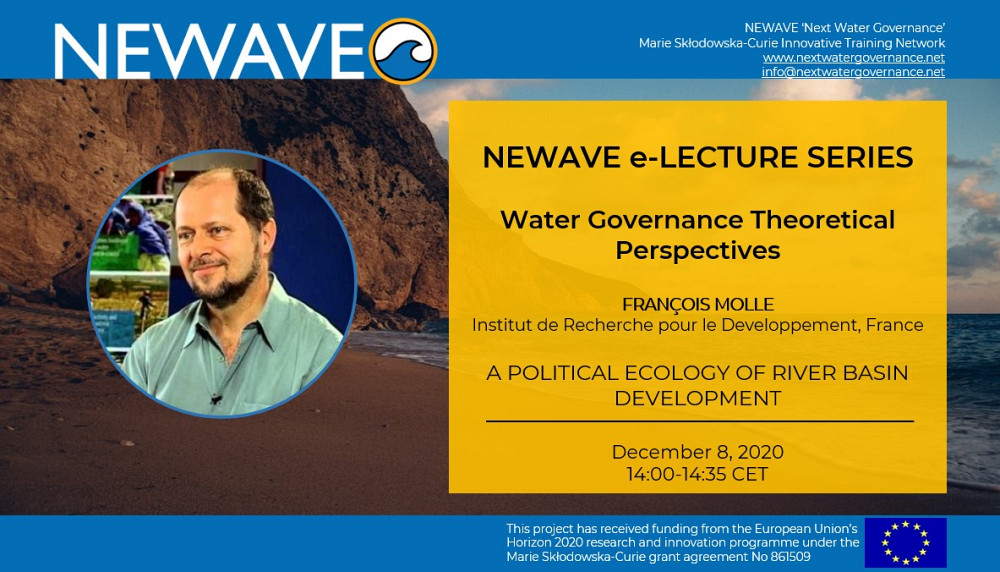NEWAVE e-Lecture Series: A political ecology of river basin development | Prof. François Molle
A political ecology of river basin development
There is a puzzling question as to why societies invariably over-develop their resources and over-extended their capacity to abstract water. Societal and political reasons are first reviewed. But what is overlooked is the consequence of overexploitation over the greater and tighter interconnectedness of users and ecosystems in a system that lack slack to adjust. This has crucial implications in terms of governance since the impacts of particular interventions on the hydrological cycle will be heightened and the distribution of costs and benefits will become a paramount issue. This presentation reviews the diversity of such impacts and emphasizes how they should be taken into consideration in a comprehensive water governance approach.
References:
Molle, F. (2009). Water, politics, and river basin governance: Repoliticizing approaches to river basin management. Water International 34(1): 62-70.
Huitema, D. and S. Meijerink (2017). The politics of river basin organizations: institutional design choices, coalitions, and consequences. Ecology and Society 22(2):42.
Molle, F . (2008). Why enough is never enough: The societal determinants of river basin closure. International Journal of Water Resource Development 24(2): 247-256.
Prof. François Molle
François Molle has 34 years of experience in research for development in the fields of irrigation systems and irrigated farming systems analysis, water resources development and management, and water governance and policy. His initial expertise shifted from small dam systems (Northeast of Brazil) to large scale irrigation management (Mali, then Thailand, Sri Lanka, Egypt), to the analysis of regional development (Southeast Asian and Nile Deltas), river basin governance, and water policy (Southeast Asia, Jordan, Iran, Sri Lanka, Syria, Egypt), and groundwater governance (Middle-east and Northern Africa). François Molle is mostly interested in multi-disciplinary and systemic approach of irrigation systems, aquifers and river basins, governance and policy analysis, and in the interaction between societies, technology, and the environment
About the e-Lecture Series:
This online training module has the objective to engage the NEWAVESRs and the audience in different water governance perspectives. All lectures are open to the public upon registration.
Please register here
A participation certificate can be requested if attending at least 80% of the online public talks.
*All times are in CET (UTC+1)
We would love to know what you think! Please leave a comment below and engage in our online discussion group.




